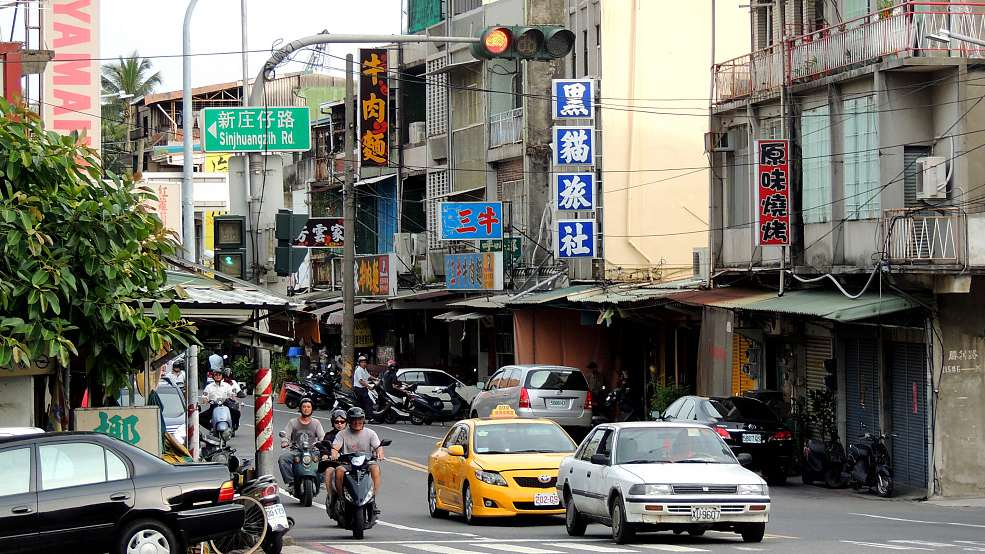
Leader of Taiwan region Tsai Ing-wen /VCG
Leader of Taiwan region Tsai Ing-wen /VCG
Editor's note: Keith Lamb is a University of Oxford graduate with an MSc degree in Contemporary Chinese Studies. His primary research interests are China's international relations and "socialism with Chinese characteristics." This is the fifth piece of our "Decoding China" series. The article reflects the author's opinions and not necessarily the views of CGTN.
Towards the end of Xi Jinping's speech at the Beijing gathering marking the centenary of the Communist Party of China (CPC), he spoke about realizing China's peaceful unification between the Chinese mainland and Taiwan region. This he said was "a historic mission and an unshakable commitment of the CPC."
Both Taiwan and the Chinese mainland are already one entity. Both sides adhere to the one-China principle which agrees to there being only one China.
Conceptually, culturally and geographically, Taiwan cannot be untangled by those who campaign for "independence". As such, they seek to discard context by invoking a simple universal dichotomy to justify their stance. Here a small democratic Taiwan faces off against a large Chinese mainland. Though, in truth, it is Tsai Ing-wen and the administration of Democratic Progressive Party (DPP) that represents the side of the large expansionist power.
Through decontextualized reporting, all of China's actions are molded into this pre-allocated dichotomy. The reporting on China's South China Sea claims and its border dispute with India are two prominent examples. However, by recognizing that Taiwan, has the same claims the veil of propaganda is lifted.
Consequently, China's actions are not that of a "hell-bent" expansionist or representative of a particular governing system. They are the logical actions of any Chinese sovereign. The same goes for attempts, to unify Taiwan with the mainland.
History shows that the bid to split Taiwan has arisen as a product of Western expansionism. Had it not been for U.S. interference, the unfinished conclusion to the Chinese civil war would have been written in the last century. Taiwan backed by the former Western colonial powers, who sought to carve up China during the century of humiliation, represents the continuation of imperial forces that still seek to enforce their hegemony.

A view of Kaohsiung, China's Taiwan region. /VCG
A view of Kaohsiung, China's Taiwan region. /VCG
Today, Western forces, through incredulous claims of "liberal enlightenment," deny their liberal imperial history. Instead, they justify their current actions as merely supporting the "natural" will of the people through the liberal democratic form.
These principled claims are fraudulent. History proves that liberalism has always catered for its own elite class interests above any political form. Hong Kong all the way up to its handover enjoyed not an ounce of liberal democracy. Then, liberal democracy, beyond its procedural façade, the claims of representing a "natural democratic will" are tainted by elite interests who manufacture consent.
In Taiwan, there is a comprador class who, through media concentration and capital allocation, work in league with U.S. interests to manufacture discontent towards the mainland. This leads to the undemocratic interests of the few controlling the narrative for the many. Jimmy Lai's whose media company Digital Next had also grown influential in Taiwan is proof of this.
The funding of Washington shill "NGOs" further breaks the illusion of organic resistance. In 2020 the Taipei Times reported that the National Endowment for Democracy (NED), which acts as a front for U.S. regime change interests, along with other Washington-backed NGO's were stepping up their efforts in Taiwan to secure their "democratic aims."
A recent investigative report by MPN news shows that Taiwan anti-unification forces spend millions of dollars supporting anti-Beijing U.S. think tanks, linked to the CIA and stacked with U.S. officials. Ominously, the Taiwan Foundation for Democracy is one of the leading funders of the Victims of Communism Memorial Foundation which has been key to spreading the Xinjiang atrocity propaganda.
This use of U.S. think-tanks is terrifying when one considers how central the Washington think-tank "Project for the New American Century" was for shaping both U.S. political and public opinion to support the undemocratic invasion of Iraq. In the case of Taiwan, they work to create the aforementioned dichotomy.
This manufactured discontent works as an all-encompassing advert for the profiteers of war. The millions spent manufacturing it are in fact a drop in the ocean compared to the billions made in weapons sales to Taiwan.
Nevertheless, the tide of history is turning. China's rise is about respecting the democratic will of the majority which seeks development, not destruction. As this tide builds in momentum China's soft power will only increase allowing it to counter imperial narratives.
For Taiwan, in particular, the key is to follow the path set out by Xi Jinping in his centenary speech. China must work hard for its next centenary goal of building a "modern socialist state" while remaining "committed to improving Party conduct and combating corruption." Ultimately, the combination of good governance and democratic development will dispel liberal propaganda and lay the unshakable foundations for peaceful reunification.
(If you want to contribute and have specific expertise, please contact us at opinions@cgtn.com.)

